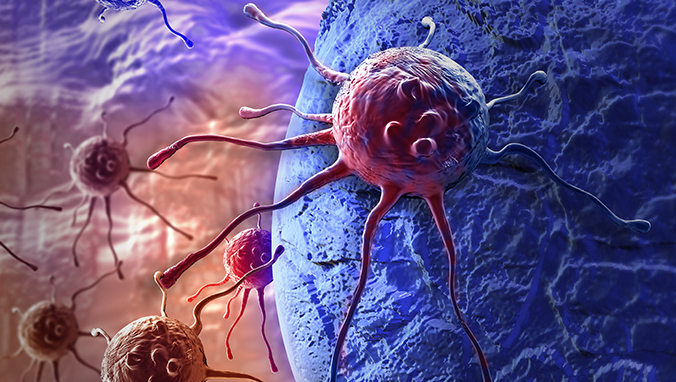Is bowel cancer lying on the stomach flat? Is it normal to feel pressure?
Is it normal to lie flat on the stomach? Is this common malignant tumor of colon cancer, which is more likely to occur in elderly males? The occurrence of the disease is closely related to lifestyle, genetics, colorectal adenoma, etc. Generally, there are no obvious symptoms. As the tumor grows, the patient will have abdominal pain, blood in the stool, abdominal mass, etc. So, is it normal for the bowel cancer to lie flat on the stomach? 
Intestinal cancer lying on the stomach The sense of oppression indicates that the tumor has oppressed the organs, the condition is more serious, and it needs to be actively treated. The occurrence of bowel cancer is related to a high-fat, low-cellulose diet, chronic inflammation of the large intestine, colorectal adenoma, genetic factors, and other factors such as schistosomiasis, pelvic radiation, environmental factors (such as molybdenum deficiency in the soil), and smoking.
Intestinal cancer is asymptomatic at the early stage, or the symptoms are not obvious, only feeling uncomfortable, indigestion, stool occult blood, etc. As the cancer develops, symptoms gradually appear, manifested as changes in stool habits, abdominal pain, blood in the stool, abdominal mass, intestinal obstruction, etc., with or without systemic symptoms such as anemia, fever, and weight loss. Tumor metastasis and infiltration can cause changes in affected organs. Intestinal cancer shows different clinical symptoms and signs because of its different locations.
The most common form of infiltration of intestinal cancer is local invasion, and the tumor invades the surrounding tissues or organs, causing corresponding clinical symptoms. Anal incontinence, persistent pain in the lower abdomen and lumbosacral region are caused by rectal cancer invading the sacral plexus. The tumor cells are implanted and transferred to the abdominal pelvis to form the corresponding symptoms and signs. The digital rectal examination can palpate the mass in the bladder rectum or uterine rectum fossa. The tumor is widely implanted and transferred in the abdominal pelvis to form peritoneal effusion.
The treatment plan for colon cancer is a comprehensive treatment plan based on surgical resection. Patients with stage Ⅰ, Ⅱ and Ⅲ often use radical resection + regional lymph node dissection, and determine the scope of radical resection and the surgical method according to the location of the cancer. If patients with stage IV intestinal obstruction and severe intestinal bleeding do not undergo radical surgery temporarily, palliative resection may be performed to relieve symptoms and improve the patient''s quality of life.
The current effect is better, more research is comprehensive treatment of surgery and radiotherapy, including preoperative radiotherapy, intraoperative radiotherapy, postoperative radiotherapy, "sandwich" radiotherapy, etc., each with its own characteristics. For patients with advanced bowel cancer, local tumor infiltration, and surgical contraindications, palliative radiotherapy should be used to relieve symptoms and relieve pain.
Related Articles

- How long can small bowel cancer survive
- Small bowel cancer is a rare malignant tumor, in which the incidence of males is twice as high as that of females, and the patients are mostly middle-aged and elderly. Common symptoms mainl
- 2020-08-01

- What stage of bowel cancer is nausea?
- The early symptoms of colorectal cancer are not obvious. They are often ignored or misdiagnosed, which leads to the delay of colorectal cancer to the middle and late stages, which has an im
- 2020-07-31

- Is rectal tumor must be cancer?
- Rectal masses are also rectal tumors. The early stage of rectal tumors should be benign and the possibility of malignancy is relatively low. When we understand rectal masses, we must first
- 2020-07-31

- Rectal cancer chemotherapy or radiotherapy is good
- The main symptom of rectal cancer is bloody stools, heavy and heavy stools, thinner stools, increased frequency and other symptoms. It can be transferred through blood, lymph and implantati
- 2020-07-31

- Grade of tubular adenoma of colon
- Tubular adenoma of the colon is a benign tumor of the colon and can also be regarded as a precancerous lesion. According to clinical size and depth, it can be divided into three grades. Tub
- 2020-07-31

- Minimal invasive effect of rectal cancer
- Minimally invasive surgery for rectal cancer can not only achieve the effect of conventional surgery, but also, due to the magnifying effect of laparoscopy, the surgical field of vision is
- 2020-07-31
